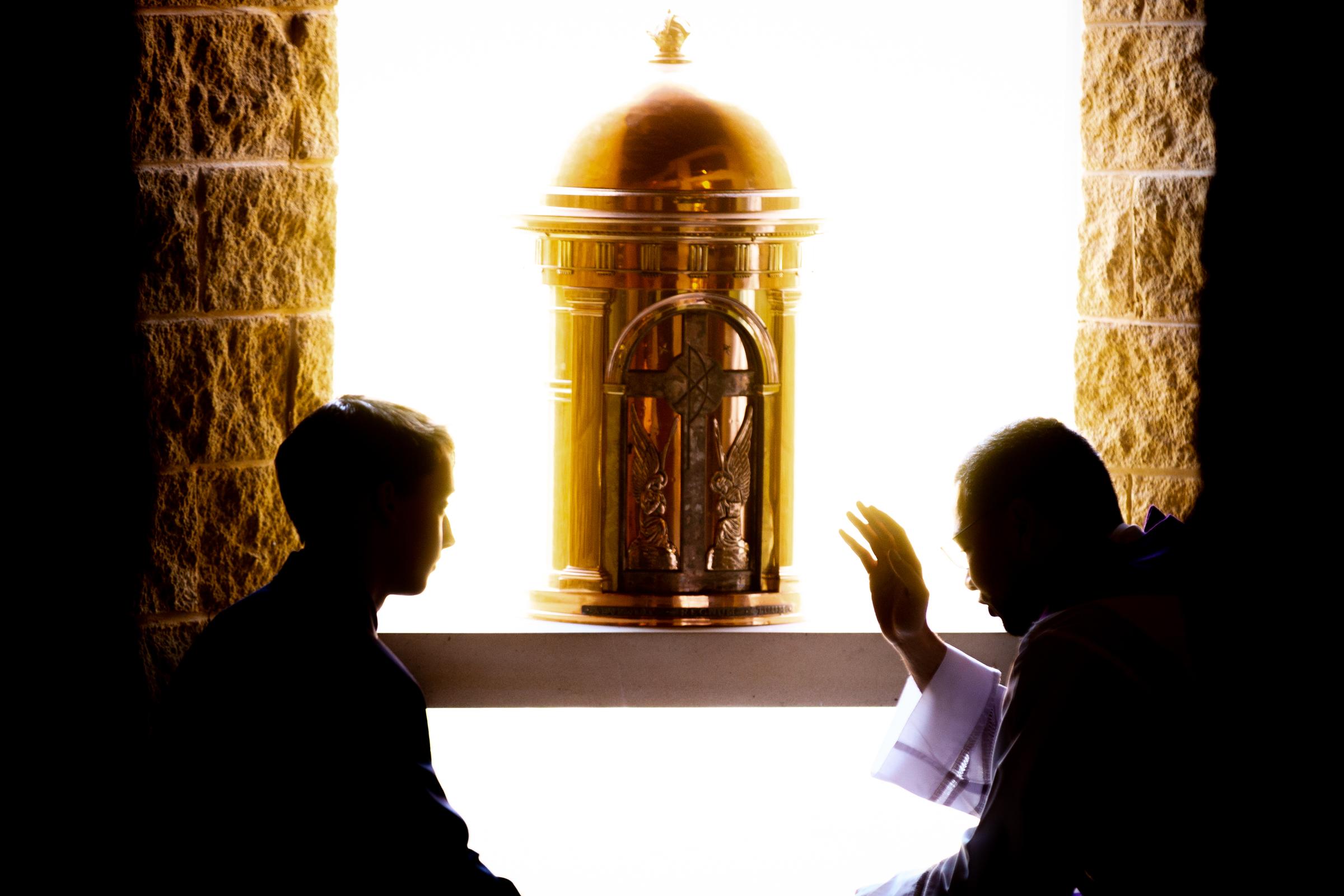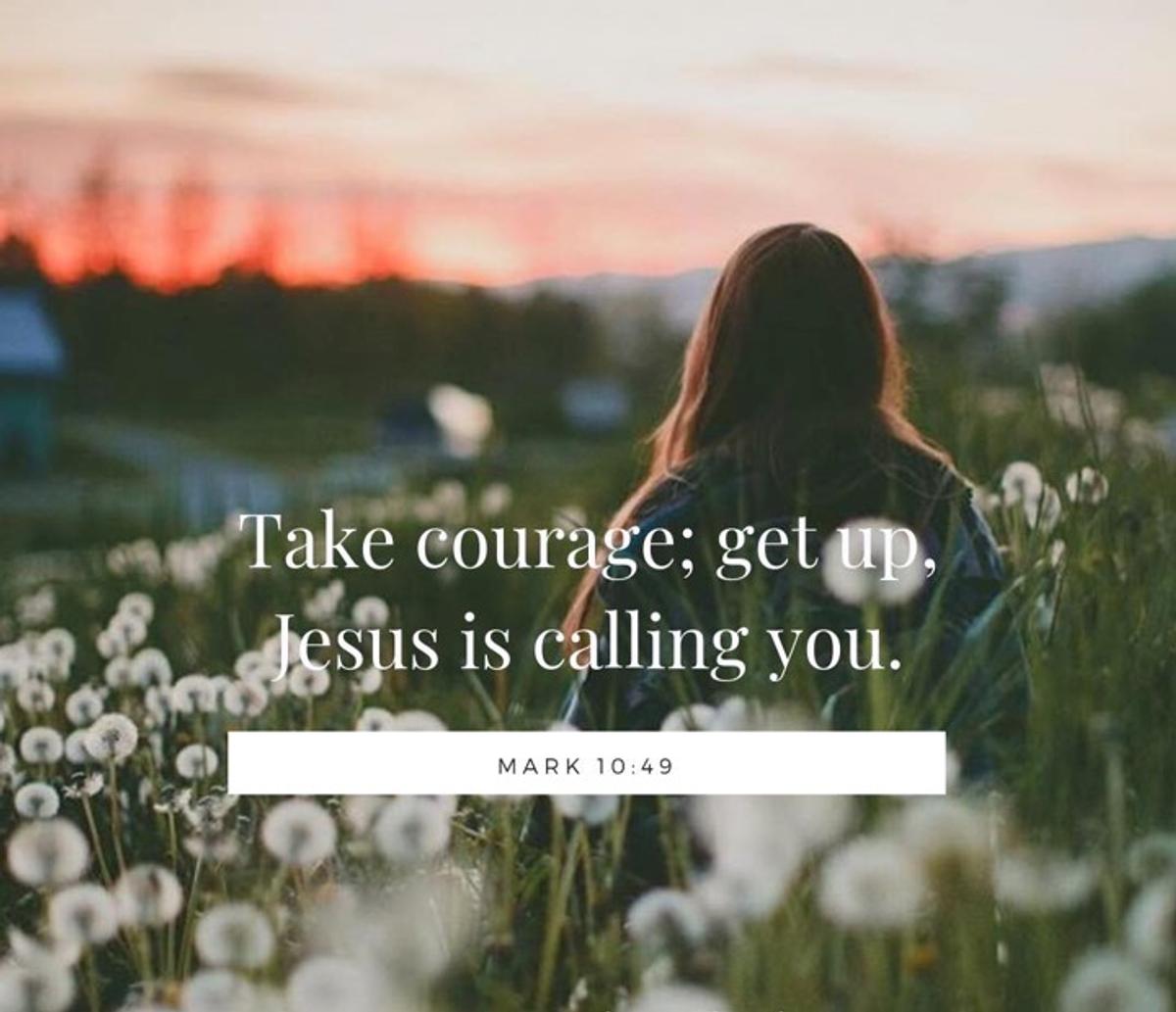Liturgy

Community Mass
“Courage! Get up! He is calling you!”
These words from Marks’ Gospel which we proclaimed at this morning’s Community Liturgy, had a particular resonance. Our newly appointed 2022 Faith and Mission Captains, with only a few hours’ notice, took on the role of leading the College community in a Liturgy of the Word. (Fr Rodrigo was unavailable this week). Thank you very much to James Green and Alice Williams for your courage and inspiration and the dignity you brought to this role.
A special thank you also to the Year 8 Homeroom leaders who took on their roles with competence. Furthermore, there were twice as many volunteers than needed. Thank you for your enthusiasm – we look forward to Year 8s leading the final Community Liturgy in December.
As always, a special thank you to altar servers and singers for their joyous and competent ministry in our community liturgies – not to mention their parents who get them here on time!
Next Friday’s Community Liturgy will be prepared by John XXIII College Staff – as it is ‘Teachers’ Day’ in Australia. All families – old and new – are welcome to come along and pray for and with the teachers. Afterwards, there is coffee and conversation in the Circle of Friends Café.
Community Mass details
- College Chapel
- Fridays in term time
- Starts: 8:00am and concludes 8:30am
Good News for 30th Sunday in Ordinary Time
Jesus gives sight to Bartimaeus – Mark 10:46-52
The reflection for this Sunday’s Gospel is part of a longer homily by Jesuit priest, Fr Richard Leonard. Fr Richard Leonard SJ is the Director of the Australian Catholic Office for Film and Broadcasting, is a member of the Australian Catholic Media Council and is author of Preaching to the Converted, Paulist Press, New York, 2006.
To have any type of disability in first century Palestine not only meant financial hardship, but social segregation. Because Jesus' contemporaries did not understand the causes of disability and illness they assumed it was, to some degree, a curse sent by God in punishment for sins. They also thought the curse could be caught. So the blind, the lame, the crippled, the leper and the bleeder were desperately poor and socially outcast. Incredibly in our day, with all our supposed sophistication, some Christians have made similar statements about God cursing gay people with AIDS. Given the way Jesus acts toward those he encounters with illness, we know that God never sends disease as a curse for sin.
Bartimeaus is, however, a desperate man and in the story he acts desperately, calling out until he is heard. And in one of the strangest questions in the Gospel, Jesus asks a blind man what it is he wants. Maybe Jesus wants Bartimaeus to name his deepest desire. Maybe Jesus knows that it is, often, the unseen hurt that is the most diseased and needs healing first. Whatever of his motives, Jesus' question gives the man dignity.
American dramatist, Michael Moynahan, has written a moving play entitled Bartimaeus which centres around that pivotal question, ‘What do you want me to do for you?’. The action of the parable, as we have it in the Gospel, freezes when Jesus puts the question.
As Bartimaeus considers his options, he hears the voices of those he might have to look at if he regains his sight. The poor remind him that, ‘once before you could see and what you saw disgusted you’. The hungry ask, ‘do you have the courage to experience and share my hunger?’. The elderly inquire whether he wants to see those ‘put away because we remind you of the frailty of life’. The captives challenge him to see those ‘unjustly bound and oppressed’. And finally the Self wants to know, ‘Are you willing to look inside yourself to see your beauty and ugliness, darkness and light?’. It's a gripping scene.
It reminds us all that sight, and the insight that can come from what we see, bestows on us the dignity of having options and the responsibility to do something about what we behold. We are in the position of making choices about what we look at. Not everything in the world needs to be seen. There is enough violence and abuse of human dignity in real life to discourage us from seeking out most fictionalised portrayals of it. We cannot, however, let ourselves off the hook in regard to seeing the world as it is and doing something about creating a better vision of humanity for everyone, everywhere.
Michael Moynahan's play finishes, like the Gospel story, with Bartimaeus requesting from Jesus the gift of sight. But in the play, in a powerful twist, as Bartimeaus follows Jesus on the path, he stops, turns and sees the human faces behind the challenging voices. He goes back, embraces them and together they walk the Christian path.
In our Liturgy the same question is put by Jesus to us, ‘What do you want me to do for you?’. And if our answer is to have sight or insight, then let's also pray for the courage to shoulder the responsibility that comes with every gift.
© Richard Leonard

